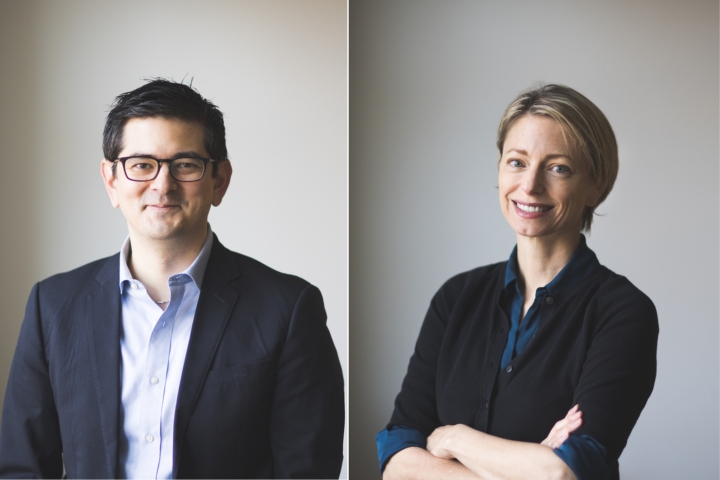Dartmouth neuroscientists Luke Chang and Thalia Wheatley are featured in the PBS NOVA production, Your Brain: Who’s in Control?, premiering Wednesday, May 24, at 9 p.m. on PBS.
The one-hour program is the second episode of a new two-part series, Your Brain, hosted by neuroscientist Heather Berlin, which explores some of the latest research on the human brain to explain how it processes the world and shapes who you are.
Both episodes will be available for streaming at PBS, NOVA on YouTube, and the PBS app.
The series’ first episode, Your Brain: Perception Deception, broadcast last Wednesday, examines how the brain shapes reality and why you can’t always trust your perceptions, as well as the shortcuts and tricks the brain uses to help humans survive.
The second episode, Your Brain: Who’s in Control?, takes a look at the latest research on the subconscious and provides insights into sleepwalking, anesthesia, game theory, and more, to reveal what really drives the decisions humans make. Emotions, trauma, and creativity and flow states are also among the themes explored.
In the episode, Chang, an associate professor of psychological and brain sciences and director of the Computational Social Affective Neuroscience Laboratory, discusses how emotions like greed and guilt affect decision-making. He explains how different regions of the brain impact our emotions and discusses the life of Phineas Gage, an American railroad foreman from the 19th century who survived a traumatic brain injury and whose story has provided insight into how different parts of the brain work together to form our behaviors and personality.
Wheatley, the Lincoln Filene Professor in Human Relations, director of Dartmouth Social Systems Laboratory, and director of the Consortium for Interacting Minds, also provides comments throughout the program on the neuroscience of social interactions, including how our relationships with other people affect our brain and how our brain informs our social lives. She also helps explain why Phineas Gage is so important in neuroscience history.
The second episode is a NOVA production by Structure Films for GBH. NOVA is the most popular primetime science series on American television and is also one of the most widely distributed science programs around the world, reaching more than 55 million Americans every year on TV and across digital platforms.

